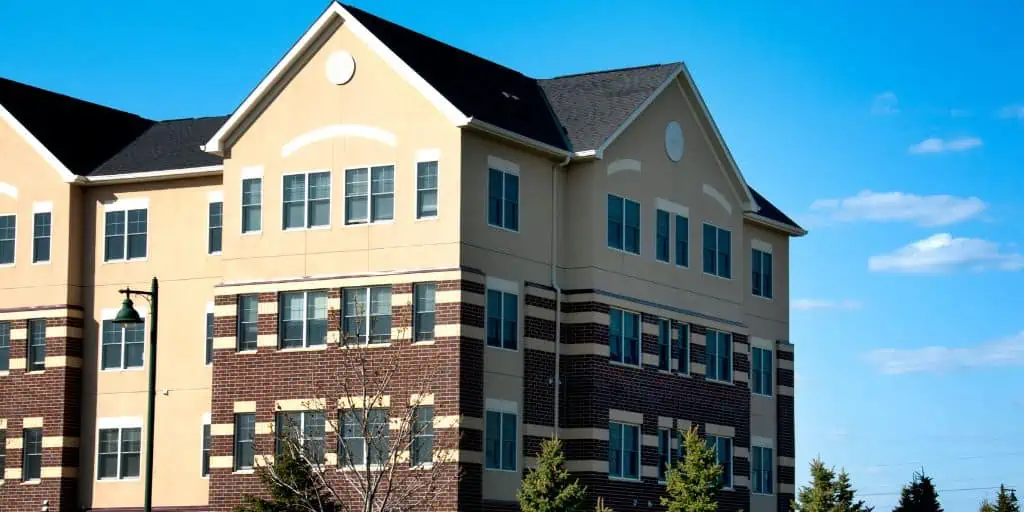What Is the Fair Housing Act?
REtipster does not provide tax, investment, or financial advice. Always seek the help of a licensed financial professional before taking action.
Shortcuts
- The Fair Housing Act protects renters and homebuyers from prejudice based on color, race, sex, religion, disability, familial status, and national origin.
- State laws introduce additional fair housing protections for unmarried tenants.
- The Fair Housing Act is not a total success, but it has given a roadmap to address housing inequality across the board.
What Is the Goal of the Fair Housing Act?
The goal of the Fair Housing Act (FHA) of 1968 is to protect homebuyers and tenants from discrimination based on things they cannot control. It helps keep landlords, home sellers, and mortgage lenders, among others, honest by penalizing offenders with hefty fines handed down from either a federal or state court.
The Fair Housing Act (not to be confused with another FHA, or the Federal Housing Administration) aims to eliminate discrimination in housing due to these seven factors:
- Color. This legislation aims to end the culture of segregation, which the American real estate industry used to embrace[1] to preserve property values in white neighborhoods.
- Race. This law prohibits racial discrimination against any American who wants to apply for housing, which is especially beneficial for minorities, such as Jewish and Hispanic individuals[2].
- Sex. Landlords, property sellers, and mortgage lenders may face hefty civil penalties if they treat male and female homebuyers differently[3].
- Religion. The FHA prohibits interference with other people’s fair housing rights due to their beliefs.
- Disability. All Americans suffering from physical or mental disabilities should have the same level of access to housing opportunities as their able-bodied counterparts.
- Familial status. No landlord or property manager can reject tenants just because they have one or more children under 18 years old. If the adult tenants have legal custody of the children, they will enjoy protection from this law. Likewise, landlords and property managers cannot mistreat pregnant tenants and those who want to adopt a child[4].
- National origin. This civil right allows immigrants, regardless of where they are originally from or their status[5], to rent a property, be a homeowner, or take out a mortgage free from prejudice like natural-born citizens.
Does the Fair Housing Act Apply to All States?
As a federal law, the Fair Housing Act applies anywhere in the United States. This means U.S. territories like Puerto Rico[6] are included too.
While the Fair Housing Act has limitations, individual states can pass legislation to complement this law.
For example, Michigan and four other states outlaw landlords from snubbing unmarried tenants[7]. Other than marital status, age, weight, and height may also be considered protected classes in Michigan at the state or city level[8].
BY THE NUMBERS: Only 28 states, plus Washington, D.C. explicitly forbid housing discrimination based on gender identity and sexual orientation.
Source: Human Rights Campaign
What Is the Most Common Type of Fair Housing Discrimination?
The most common fair housing discrimination is disability based on the number of complaints.
Usually, biases against handicapped people by housing providers are fairly easy to notice and prove. For this reason, disabled persons tend to feel more emboldened to file a case against an alleged fair housing offender, thus leading to a higher number of complaints.
Here are classic examples of fair housing discrimination committed against people with disabilities:
- Denying housing because of the notion that they are incapable of living independently.
- Non-compliance with the building code, resulting in accessibility issues.
- Handling requests for reasonable changes to the property unsatisfactorily[9].
Although most fair housing discrimination is about disability, that does not mean prejudices based on race, color, religion, sex, and other factors have disappeared.
In fact, the victims of most of the pattern or practice cases the Department of Justice handles are people of color[10]. These lawsuits are filed against individuals believed to have a policy of treating certain races unfairly even though they do not observe this practice every time.
Discriminatory landlords and home sellers are more likely to skirt federal laws because they have ways of justifying their discriminatory housing practices should an issue get raised.
Familial status discrimination is not uncommon either. Many landlords prefer to accept tenants without children to avoid spending on lead abatement costs[11] and dealing with noise. Some even frown upon tenants with too many kids[12].
BY THE NUMBERS: Nearly 55% of reported fair housing violations are committed against people with disabilities.
Source: National Fair Housing Alliance
Exceptions to the Fair Housing Act
The Fair Housing Act does not apply to the following cases:
- Owner-occupied multi-family homes made up of four units max.
- Single-family homes rented or sold without a broker.
- Apartments leased by religious organizations.
- Senior housing.
- Private clubs.
Even with these exceptions, the Fair Housing Act makes sure real estate professionals are held to a higher standard and are expected to act with integrity at all times[13].
Furthermore, the Fair Housing Act does not grant anyone the green light to advertise an excluded property for rent or sale in a discriminatory fashion.
How Effective Is the Fair Housing Act?
Since the implementation of the Fair Housing Act, there has been some progress. For example, blatant discrimination in advertising is now banned[14], but there are signs the United States is still far from beating discrimination completely.
Five decades after the Fair Housing Act was enacted, many local markets remain racially segmented. The African-American, Hispanic, and Asian communities have borne the brunt of subtle discrimination.
- African-American neighborhoods. Homes in these communities are more prone to depreciation than in white communities[15]. As a result, these minorities find it more difficult to build equity and increase their wealth.
- Hispanic-sounding names. These individuals get fewer responses when they ask about open listings than those perceived to be white[16].
- Asians. Despite being the highest-earning racial group in the U.S.[17], Asians are being treated unequally next to their white counterparts[18].
While the FHA allows the federal government to prohibit racial discrimination, the problem lingers. However, some optimistic reports say that the U.S. has become less discriminatory[19], indicating that fair housing-related activities are moving in the right direction.
Sources
- Coates, T. (2014.) The Case for Reparations. The Atlantic. Retrieved from https://www.theatlantic.com/magazine/archive/2014/06/the-case-for-reparations/361631/
- O’Hare, W. & Pollard, K. (1999.) America’s Racial and Ethnic Minorities. PRB. Retrieved from https://www.prb.org/resources/americas-racial-and-ethnic-minorities/
- Housing Equality Center of Pennsylvania. (2014.) Penalties for Fair Housing Violations. Retrieved from https://www.equalhousing.org/fair-housing-topics/penalties-for-fair-housing-violations/
- Dillman, B. (2021.) Who’s Protected Against Familial Status Discrimination? Nolo. Retrieved from https://www.nolo.com/legal-encyclopedia/whos-protected-against-familial-status-discrimination.html
- Fair Housing Center of Central Indiana. (2021.) National Origin, Immigration, & Refugee Status. Retrieved from https://www.fhcci.org/programs/education/national-origin-immigration-refugee-status/
- Cotter, D. (2019.) Territories of the United States. Constituting America. Retrieved from https://constitutingamerica.org/territories-of-the-united-states-guest-essayist-daniel-a-cotter/
- Gwinn, D. (2022.) Ask the Lawyer: Can a landlord discriminate based on marital status? The Oakland Press. Retrieved from https://www.theoaklandpress.com/2022/05/20/ask-the-lawyer-can-a-landlord-discriminate-based-on-marital-status/
- Fair Housing Center of West Michigan. (n.d.) Fair Housing Laws. Retrieved from http://www.fhcwm.org/laws
- Sacramento Self Help Housing. (n.d.) What is Disability Discrimination? Retrieved from https://www.rentershelpline.org/en/what-is-fair-housing/9-rh/37-what-is-disability-discrimination.html
- U.S. Department of Justice. (2022.) The Fair Housing Act. Retrieved from https://www.justice.gov/crt/fair-housing-act-1
- Gorey, J. (2017.) Landlords are unabashedly (and illegally) discriminating against families with kids. House & Hammer. Retrieved from https://www.houseandhammer.com/landlords-unabashedly-illegally-discriminating-families-kids/
- Peverley, E. (2020.) Can Landlords Deny An Apartment If You Have “Too Many” Kids? Moms.com. Retrieved from https://www.moms.com/can-landlords-deny-apartment-many-kids/
- Yoegel, J. (2016.) 1968 Federal Fair Housing Act Exceptions on the Real Estate License Exam. dummies. Retrieved from https://www.dummies.com/article/academics-the-arts/study-skills-test-prep/real-estate-licensure-exam/1968-federal-fair-housing-act-exceptions-on-the-real-estate-license-exam-161272/
- Jargowsky, P. (2019.) The Fair Housing Act at 50: Successes, Failures, and Future Directions. Taylor and Francis Online. Retrieved from https://www.tandfonline.com/doi/full/10.1080/10511482.2019.1639406
- Zonta, M. (2019.) Racial Disparities in Home Appreciation. Center for American Progress. Retrieved from https://www.americanprogress.org/article/racial-disparities-home-appreciation/
- Demsas, J. (2021.) Black and Hispanic renters experience discrimination in almost every major American city. Vox. Retrieved from https://www.vox.com/22815563/rental-housing-market-racism-discrimination
- Statista Research Department. (2021.) Median household income in the United States in 2020, by race or ethnic group. Statista. Retrieved from https://www.statista.com/statistics/233324/median-household-income-in-the-united-states-by-race-or-ethnic-group/
- Aranda, C. & Levy, D. (2021.) More Than 50 Years after the Fair Housing Act, More Action Is Needed to Address Housing Discrimination against Asian Americans and Pacific Islanders. Urban Institute. Retrieved from https://www.urban.org/urban-wire/more-50-years-after-fair-housing-act-more-action-needed-address-housing-discrimination-against-asian-americans-and-pacific-islanders
- Jacobs, T. (2019.) Americans Are Becoming Less Racist and Homophobic, According to New Research. Pacific Standard. Retrieved from https://psmag.com/social-justice/americans-are-becoming-less-racist-and-homophobic













